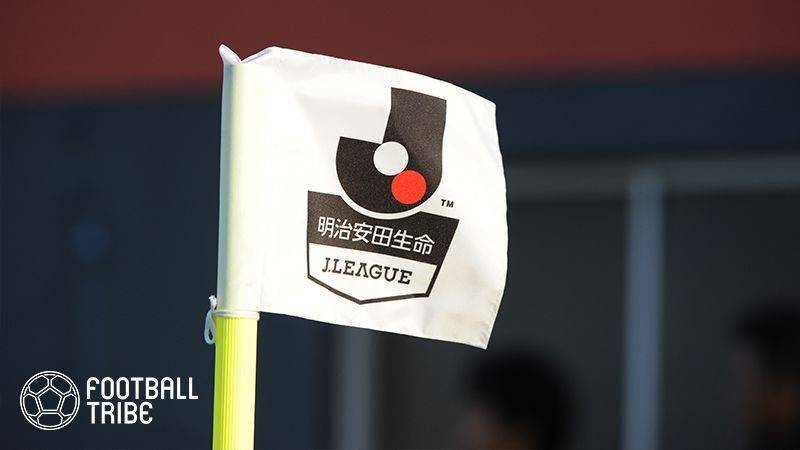
A non-league team as recently as 2009. Zero experience whatsoever in the top-flight. A head coach that was formerly a coach at high school level. Currently four points clear on top of the J.League 1 table. Few have came to match Leicester City’s fairytale title-winning season in 2015-16, but the story of Machida Zelvia might as well surpass that of the Foxes.
Saturday’s 4-0 win over Jubilo Iwata meant that Machida maintained their healthy distance over second-placed Sanfrecce Hiroshima, who edged out Nagoya Grampus 2-1 on the same day, while at the same time taking advantage of third-placed Kashima Antlers’ 0-0 draw with Urawa Red Diamonds. The match itself saw debutant Yuta Nakayama – previously of relegated EFL Championship side Huddersfield Town – scoring his first goal after returning to his homeland.
Formed in 1989 and representing the western Tokyo suburb of Machida, Zelvia were a club founded as a melting pot of talent within a region known as the “Brazil of Tokyo,” as Machida had produced the second-largest amount of J.League players.
Machida mostly ply their trade from their foundation towards the late 2000s within the non-league system of the Japanese football pyramid, before entering the Japan Football League – then the third-tier of Japanese football – in 2009. They spent three years there, before being promoted to the J.League 2 in 2011, only to be relegated straight down the following year.
The J.League 3 was founded in 2014, bumping down the JFL into the fourth tier, with Machida being one of the 12 founding members. After that the team established themselves as a top dog in the J3, finishing second in 2015 and beating Oita Trinita in the promotion/relegation play-off to ensure promotion to the J2.
Machida’s next few years saw them establishing themselves as a proper J2 side, often flirting with promotion only to be denied by a lack of a proper J1 license, or struggling to avoid the drop and finishing in the lower reaches of the league table.
After long-serving head coach Ranko Popovic left Machida to take up the Vojvodina job in his home country of Serbia in February of 2023, the club’s bosses turned to Go Kuroda to fill in the vacant position. Go was famous in Japan not as a proper head coach, but as the head coach of the Aomori Yamada High School for the past 28 years. Under his tutelage, Aomori Yamada won three national high school championships and since high school teams are quite integral to the youth player development in Japan, what Go did isn’t something to be taken lightly.
However, despite this, Go’s appointment was still considered a gamble from Machida, especially considering that he had never played professional football even once.
Helping out Go as his assistant coach was Kim Myung-hwi, a South Korean who was no stranger to an underdog story – as he was the one who turned Sagan Tosu from a side on the brink of bankruptcy in 2020 to a team challenging for Asia in 2021.
With a number of shrewd signings and a style of play that emphasizes directness and aggressiveness – a stark contrast to the typically technique-oriented Japanese style of play – Machida under Go and Myung-hwi romped to the 2023 J2 title, and with it, their first-ever promotion to the top-flight.
And the duo didn’t stop there.
Former Japan football great Kosuke Ota may have announced his retirement after the 2023 campaign, but Machida managed to land Gen Shoji as his replacement in the back. With 20 caps for the Japan national team, Shoji was more well-known for his tenure at Kashima Antlers between 2011 and 2018, where he made over 110 appearances.
There were also the loan signings of Oh Se-hun, Kai Shibato, and goalkeeper Kosei Tani, the free signing of South Korean international Na Sang-ho, and the raid of Myung-hwi’s old stomping ground of Tosu, where Shunta Araki and Daisuke Matsumoto were brought in.
Keiya Sento, a former protege of Myung-whi’s at Tosu, was brought in from Kashiwa Reysol, while Junya Suzuki joins from city rivals FC Tokyo and Shota Fujio was drafted in from Cerezo Osaka.
It was worth noting that both Matsumoto and Fujio were on-loan at Machida the previous season, and were signed on permanent contracts prior to the start of the 2024 campaign.
In fact, with the exception of perhaps Shoji, Shibato, Sang-ho, and Kosovo international Ibrahim Dresevic, none of Machida’s new signings were players with noticeable star-power.
From Machida’s existing squad from the previous season alone, the only notable names present were Erik, who was part of Ange Postecoglou’s Yokohama F. Marinos squad that won the J1 in 2019, and Mitchell Duke, an established Australia international who had turned out for the likes of Central Coast Mariners, Western Sydney Wanderers, and Shimizu S-Pulse.
Indeed, Machida had develop a knack of making their own stars – Hokuto Shimoda, previously of Oita Trinita, has developed a reputation as one of Japan’s most formidable defensive midfielders, while Yu Hirakawa was an up-and-coming young winger developed within the confines of Machida itself, whose impressive performances have attracted the attention of EFL Championship side Bristol City, and he has since turned out for them on loan.
With a refreshing, aggressive, and more direct style of play, a habit of bouncing back from each setback by performing impressively – the aforementioned 4-0 win over Jubilo came after a disappointing 1-0 home defeat at the hands of strugglers Shonan Bellmare – and a squad lacking ego and possessing collective spirit, Machida are carving a Leicester-esque story of their own – and even possibly surpass the Foxes in some aspects!

